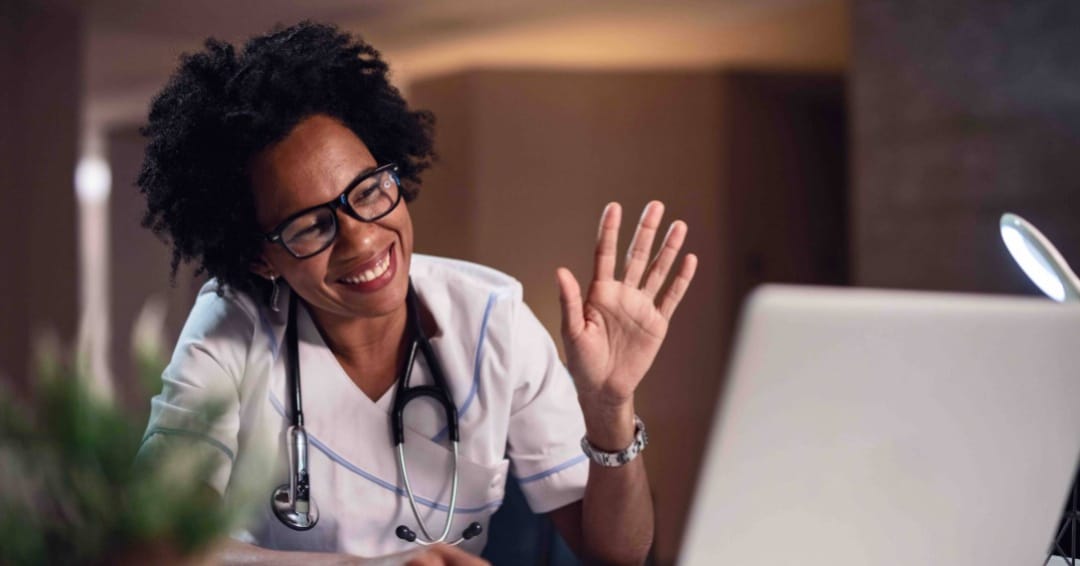Supporting mental health needs in rural areas
- April 20, 2023
- The REACH Institute
- ADHD, Anxiety, Child mental health, Depression, Eating disorders, High-risk children & youth, LGBTQIA, Parents, Patient communication, Pediatric primary care

Accessing mental health resources in under-resourced communities can be a challenge. With limited resources and sparse populations, rural healthcare providers can be overwhelmed and understaffed with specialists to address the specific mental health needs of their patients.
Elizabeth Wallis, M.D., Director of Adolescent Medicine at the Medical University of South Carolina and a REACH faculty member, shed some light on accessing resources in a resourceless community, “A lot of the rural communities are lacking just about everything now…They may have some general mental health services and counseling resources, but they may not have somebody who’s trained in an evidence-based trauma treatment or in eating disorder treatment.”
Part of Dr. Wallis’s success in building community was inspired by the REACH course, Patient-Centered Mental Health in Pediatric Primary Care (PPP). “One of the things that I learned…was about building your virtual team and I think that I took that to heart…it very much shaped everything I did after that.”
Building your virtual team is one of the many skills that can be learned through the PPP Program. Here are some highlights to help expand your reach.
How to Build Your Virtual Team
Connect with Community
- Parents: keep close communication about progress with your most important partners
- Internal: collaborate with all staff members of your practice, including social workers, patient coordinators, clinicians
- External: speak with places like schools or sports coaches to help support your patient
Support with Knowledge
- Education Resources: offer lists of websites, start a Lending Library, and provide parent hand-outs (see our handout for Anxiety)
- Build New Skills: assign required readings or parent homework to teach them about their child’s issue
Plan Ahead
- Build a Team: have a list of specialists to refer patients to
- Partner with Others: start a dialogue with those that do what you do
One of the ways Dr. Wallis took on the challenge of building her team was to take over an on-call position for an inpatient psychiatric unit. This allowed Dr. Wallis to get to know and form closer relationships with the child and adolescent psychiatrists in her area, and in turn, easier access to psychiatric consults for her patients.
Through connecting her community—virtually, and locally—Dr. Wallis was able to make a difference for people in the rural areas around her. If you are a specialist, reaching out to rural communities with limited resources could be an invaluable resource and could help spread the talent, care, and knowledge there is to share.
The great thing about the age we live in is the significant advancements in mental health care online. Online resources allow individuals living in rural areas to access mental health support without leaving their homes. Here’s a list of Dr. Wallis’s favorite online resources, with a few extras.
RESOURCES
ADHD
CHADD educational support for children with ADD and ADHD
ADDitudeMag.com information about IEPs and advocacy in school
Anxiety/Depression
Child Mind Institute educational materials for anxiety and depression.
The Anxiety and Depression Association of America (ADAA) is another great resource for both patients and healthcare providers.
The Steve Fund (National) supports the mental and emotional health of young people of color.
Eating Disorders
Feast-ed.org comes highly recommended by Dr. Wallis.
LGBTQ+ Support
Alliance for Full Acceptance (South Carolina-based) is an organization committed to working towards a state where all people are valued and respected.
The Trevor Project (National) provides crisis intervention and suicide prevention services to LGBTQ individuals.
Categories
- ADHD
- Anti-racism
- Anxiety
- Assessment & screening
- Autism
- Child mental health
- Coding
- Cognitive behavioral therapy
- College transition
- Culturally responsive
- Depression
- Eating disorders
- Foster care
- Grief
- High-risk children & youth
- LGBTQIA
- Medication
- Parents
- Patient communication
- Pediatric primary care
- School refusal
- Sleep disorders
- Suicide
- Trauma
- Show All Categories
Register for courses
“Very interesting topics. Great information, facts, links, articles as references. Great role plays and all amazing REACH trainers!”
